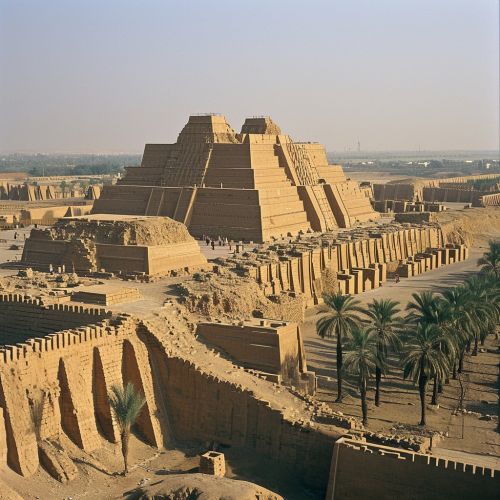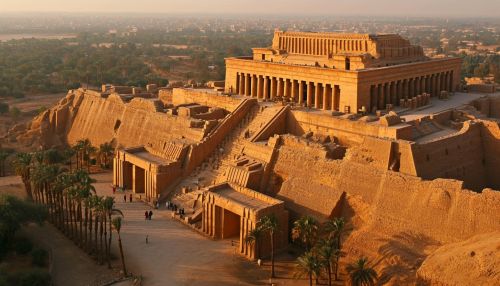First Babylonian Dynasty
Origins
The First Babylonian Dynasty, also known as the Amorite Dynasty, was a period of the ancient Mesopotamian civilization that began around 1894 BC and ended around 1595 BC. The dynasty was founded by an Amorite chieftain named Sumu-abum, who declared independence from the neighboring city-state of Kazallu. This period is characterized by the establishment of Babylon as a central power in Mesopotamia, and the implementation of a legal code, the Code of Hammurabi, which had a profound influence on subsequent legal systems in the region and beyond.


Political Structure
The political structure of the First Babylonian Dynasty was a monarchy, with the king being the supreme authority. The king was responsible for maintaining law and order, conducting religious ceremonies, and leading the military. The king was assisted by a council of elders and officials who were responsible for various administrative tasks. The dynasty was characterized by a centralized administration, with the king having direct control over the city-states within his realm.
Economy
The economy of the First Babylonian Dynasty was primarily based on agriculture, with the fertile lands of Mesopotamia providing ample opportunities for farming. The Babylonians grew a variety of crops, including barley, wheat, dates, and vegetables. They also raised livestock such as sheep, goats, and cattle. Trade was another important aspect of the Babylonian economy, with the city of Babylon being a major trade hub in the region. The Babylonians traded with neighboring regions such as Assyria, Elam, and the Indus Valley.
Society and Culture
The society of the First Babylonian Dynasty was hierarchical, with the king and his family at the top, followed by the nobility, the commoners, and the slaves. The Babylonians followed a polytheistic religion, with the chief deity being Marduk, the god of thunder and lightning. The Babylonians were also known for their advancements in various fields such as astronomy, mathematics, and law. The Code of Hammurabi, one of the oldest known legal codes, was implemented during this period, which laid down laws on a wide range of issues, from property rights to trade regulations to criminal punishments.
Decline
The decline of the First Babylonian Dynasty began in the mid-16th century BC, with the invasion of the Hittites. The Hittite king, Mursili I, sacked Babylon in 1595 BC, marking the end of the dynasty. After the fall of the First Babylonian Dynasty, the region came under the control of the Kassites, who established the Second Babylonian Dynasty.
